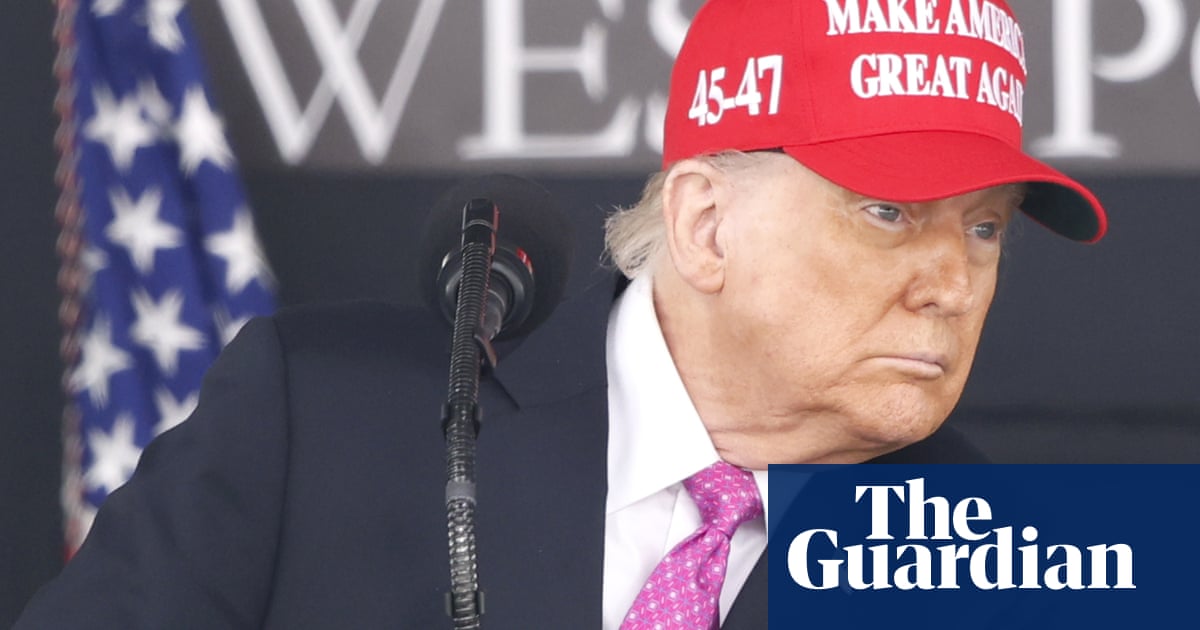Donald Trump said the EU had been dragging its heels “to put it mildly” on sealing a tariff deal with the US, repeating his assessment that his threat of a 50% tariff on imports from the bloc was an “extremely” satisfactory move.
He commended the EU for calling to “quickly establish meeting dates” but reignited fears of a trade war with the region by adding criticism of the EU to his statement on his Truth Social platform on Tuesday.
“I was extremely satisfied with the 50% tariff allotment on theEuropean Union, especially since they were slow walking (to put it mildly!), our negotiations with them,” he said.
“I have just been informed that the EU has called to quickly establish meeting dates. This is a positive event, and I hope that they will,” he said, advising the EU that it would be “very happy” if it followedChinaby securing a deal.
In what looks like another veiled threat on tariffs, he added that he was empowered to “set a deal” if the US was “unable to make a deal” or was “treated unfairly”.
His carrot-and-stick declaration came asEmmanuel Macronwarned Vietnamese students about the consequences of impulsive superpowers in a swipe at Trump’s chaotic tariff policies.
During a six-day south-east Asian tour, the French president said that “on the impulse of a superpower, everything can change”.
On Trump’s policies in the US, he said tariffs were being imposed “according to the side of the bed on which he woke up”.
The remarks come a day afterTrump walked backon his threat to impose 50% tariffs on imports from the EU from this coming weekend, instead delaying them to 9 July.
He complained talks with the EU were“going nowhere”and the bloc was “very difficult to deal with”.
After the weekend’s mayhem, there is evidence that EU policymakers are scrambling to get a handle on the scale of European direct investment in the US with requests going out to industry leaders to share their investment plans.
Members of the Confederation of European Business, also known as BusinessEurope, an alliance of 42 federations across the region, received a survey from the European Commission on Monday. It asked for information on upcoming US investments, with the instruction to respond as soon as possible, one source said.
A similar note seeking information on investment plans for the next five years was sent to the 59-person European Roundtable for Industry, which represents industry and the tech sector. The petition for information came with a note saying the request had came personally from the European Commission president, Ursula von der Leyen.
Sign up toBusiness Today
Get set for the working day – we'll point you to all the business news and analysis you need every morning
after newsletter promotion
The roundtable’s members include the CEOs of companies including the chip equipment maker ASML, the German chemicals group BASF and the software company SAP, as well as the carmakers BMW and Mercedes-Benz.
A headline figure on EU investment plans could prove critical in negotiations. Last month, Trump touted investments from US companies including the chip maker Nvidia and the pharma giant Johnson & Johnson – both of which have a large presence in Europe – as evidence that histariff strategywas paying off with the repatriation of jobs to the US.
European and Asian stock markets rose on Tuesday as investors continued to react positively to Trump’s decision to backtrack on Friday’s threat to impose 50% tariffs on EU exports.
Naeem Aslam, the chief investment officer at London’s Zaye Capital Markets, told CNBC that the tariffs delay had sparked a “tentative risk-on rally”.
“Looking ahead, the EU-US trade dance is a high-stakes tango, with July 9 as the next flashpoint,” he said. The EU was dangling phased tariff cuts and “mutual respect” talks, but he warned businesses to “buckle up; this ride’s far from over”.
EU leaders have expressedhopes for a quick dealto resolve the trade war with the US after Trump said he would pause the 50% tariffhe had announced two days earlier, after what he called a “very nice call” with von der Leyen.
